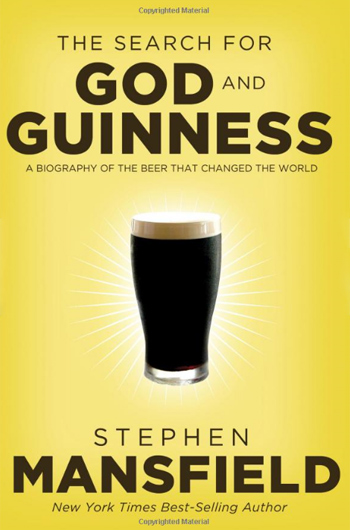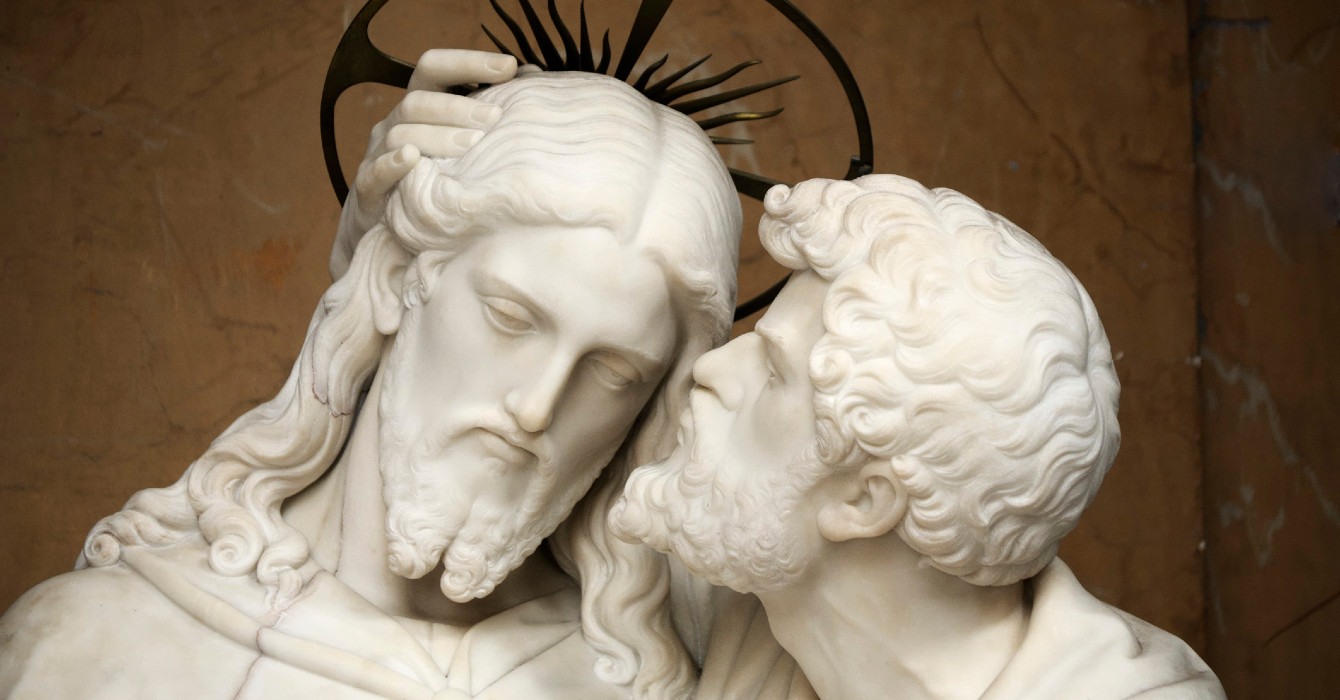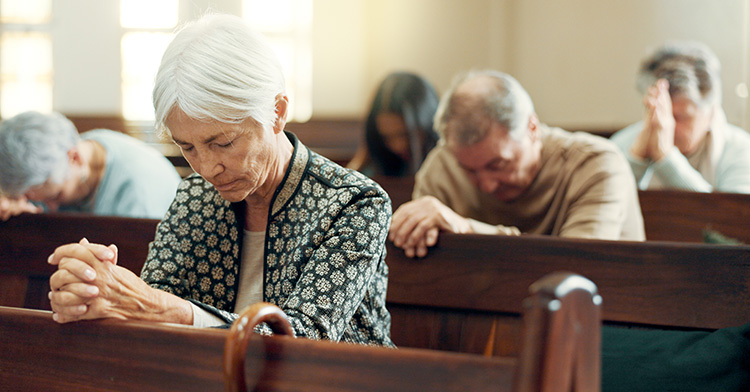Christianity has lost three important guide wires: integrity, credibility and, most pressingly, civility, said Os Guinness, co-founder of The Trinity Forum. Guinness believes that Christians must abandon political bitterness and fulfill Jesus’ commands to love one another. His approach to the intractable differences among world religions is to create a “political framework of rights, responsibilities and respect to which all agree.”
A great-great-great grandson of Arthur Guinness, the Dublin brewer and founder of the Guinness brewery, Guinness was born in China where his parents were missionaries during World War II. In childhood he witnessed the Communist takeover of China.
Guinness earned an undergraduate degree at the University of London and a doctorate in social sciences from Oriel College, Oxford. He has been a guest scholar at the Woodrow Wilson Center for International Studies and a visiting fellow at the Brookings Institution and he has published more than 20 books, including “The Case for Civility: And Why Our Future Depends on It.” In 1991 he co-founded The Trinity Forum, an organization that hosts forums for leaders in business and politics.
The edited transcript and related video clip are from a conversation with Guinness in October 2009 at Convocation & Pastors’ School at Duke Divinity.
Q: What is important about civility?
How we live with our deep differences is at stake with civility. It’s the American way as described by James Madison, with no state church and no religious monopoly. The framers [of the U.S. Constitution] got religious liberty right with the First Amendment in 1791, long before they got race or women right.
However, the way the founders set the country up has been breaking down since the 1960s, or really since the Everson case in 1947. We have incessant cultural warring with, as Richard Neuhaus put it, the sacred public square on one side and the naked public square on the other. Both of the sides are well funded, both employ batteries of lawyers, both are nationally led and it’s a disaster for America. What Neuhaus and others call the “civil public square” is a key to the American future; Christians should be champions of that civil public square.
Q: Is there a tension between civility and the prophetic role of the minister in the pulpit?
Misunderstandings surround the idea of civility; it’s frequently mistaken for squeamishness about cultural differences, false tolerance or dinner-party etiquette. Classically, civility is a republican virtue, with a small “r,” and a democratic necessity, with a small “d.” It’s the only way you can have a diverse society, freely but civilly, peacefully.
As Christians, we have deeper motivations still [for championing civility]. Followers of Jesus are called to be peacemakers, with truth and grace; Paul asks us to speak the truth with love. We’re called to love our enemies and do good to those who wrong us. This is our Christian motivation for championing the classical virtue of civility.
Freedom of conscience [upholds] the right to believe anything, but the right to believe anything does not mean that anything anyone believes is right. That is nonsense. We have a right and a responsibility to disagree, to debate, to persuade someone that they’re out to lunch. They may be muddle-headed. They may be socially disastrous. They might even be morally evil, but we have a responsibility to disagree civilly.
Q: Much of the incivility in recent cultural debates has come from Christians, has it not?
With the election of President Obama, there was a distinct decline of the religious right. My hope was that good Christian leadership would swing us to a more responsible position, but there isn’t the leadership that there was in the past. The groundswell of populism has joined the bitter resentment we see bubbling up in the health care debates; it’s very dangerous.
It’s time for Christians to speak out, to follow our Lord clearly and differently. I boil [the difference] down to three words: integrity, credibility and civility. Integrity asks, “can we be 100 percent faithful to Jesus, following his teachings, growing like him and still engage with the modern world so that faith prevails?” That’s integrity. Much of the church lacks integrity.
The second difference is in credibility. Since the Enlightenment all Christians are what Richard Dawkins calls “faith heads,” anti-intellectuals, despite the fact that many of the greatest thinkers of Western history -- Augustine, Pascal and Newton among them -- loved Christ passionately. I knew Bertrand Russell when I was a student. He said Christians would sooner die than think. We need to be champions of truth, champions of thinking and love God with our minds in order to recover the great credibility of the gospel.
The third difference is with civility. That sounds very abstract, compared to addressing AIDS, or nuclear issues or terrorism. Actually, living with our deep differences underlies all the other issues. America once got it nearly right, but America is losing its way.
Q: Overall, what is your calling? What ties your work together?
I like to live between the church and the world, making sense of the church to the world and making sense of the world to the faithful. I love apologetics and I love analysis. I live between high-level knowledge and popular knowledge. Christian scholarship is magnificent today. The [communication] gap is with those in the middle, with intermediate knowledge. Much of the good scholarship in the church is unknown to ordinary folk. In my role, I read all that stuff to make it practicable to people. Otherwise the church is not united, it is paraplegic -- the head thinks one way and the body twitches another.
Q: How does your leadership academy, The Trinity Forum, help your intermediary role?
The Trinity Forum is Socratic [in form]. We have no lectures, no sermons, no teachings and no talks. Whatever the topic, we give people the readings on it two months ahead of the forum. Moderators lead the discussion. The leaders do the work for themselves and come to their own conclusions. As in the parables of our Lord, when you engage people, they participate and learn much more.
Our curricula cover many of the great issues of Western civilization, issues of philanthropy and character. Today’s leaders are the heirs to 3,000 years of Western civilization. We are the custodians of that in our time and we need to know what shaped us. Every issue is set in the context of the discussion that’s gone before…we stand here today in the light of those 3,000 years of heritage.
In The Trinity Forum we’re talking about growing real leadership, not just politicians but statesmen. Often people use the word “intractable” to describe a problem. Intractable problems [indicate] a lack of courageous leadership. Christians should not be complaining and criticizing, but looking at the problems of the world and saying, “We’ve got Christian solutions to these problems.”
I’m working on a global declaration on freedom of conscience. It will [demonstrate] how we can live with deep differences in order to create a cosmopolitan civil public square. Christians should be in the forefront of constructive solutions, bringing Christian principles to bear on the world’s big problems; that’s real leadership.
Dialogue and friendship with Muslims, Buddhists, etc., is perfectly fine, but it’s a total failure as a solution to world peace. You cannot reach interfaith unity and still remain true to your own faith. The differences between various ideologies are deep, ultimate and irreducible. Compromise, not dialogue, is the only way we can reach a common denominator. My approach is to create a political framework of rights, responsibilities and respect to which all agree. Within that framework each faith engages peacefully, free to be itself and therefore different.
I don’t support a sacred public square (the religious right square) or a naked public square (from which the ACLU removes religion), but a civil public square. This is a vision of public life in which people of every faith -- Christian, Jewish, atheist, Muslim, Mormon, Scientologist, etc. -- are free to engage in public life on the basis of their faith, with freedom of conscience. We must engage publicly within a framework of what’s agreed to be fair for all. What is a right for Christians will be automatically a right for an atheist, a Jew or a Muslim. A right for one is a responsibility for the other; it’s very important to guard each other’s rights.
I use the example of the Queensberry rules from boxing. [With roots in] Roman gladiatorial games, boxing was pretty brutal up until the 19th century. In 1867 the Marquis of Queensberry lent his name to regulations that put boxing in a ring, under a referee, within [a framework of] rules. For instance: Touch gloves to begin and don’t punch below the belt. But boxing is not a love-in. Boxers fight until one loses.
That’s democratic civility. It’s not a “Kumbaya” moment in which we happily agree. The difference is that you are debating with words [rather than fists.]
Q: Can you give an example of civil debate along the lines of Queensberry rules that changed a society?
With an understanding that humans are made in the image of God, Christians and Jews know that every human is precious and has dignity. William Wilberforce entered the ring in 1787 when he argued for the abolition of slavery in the English House of Parliament. He was defeated, defeated, defeated and defeated. Every year he entered the ring again. It took him 20 years to win. He was prepared to enter the ring [as often as it took] to persuade and prevail. That’s democratic civility.
Wilberforce was gracious; he was humble and loving. Twice, opponents physically attacked him in the street. He remained gracious even when he was the most disparaged man in the world. He never vilified his opponents. A lot of reformers are fanatics, like William Lloyd Garrison in the United States. Wilberforce was never a fanatic. He was a follower of Jesus, humble, gracious and loving. That’s how we should be known, not as culture warriors.













